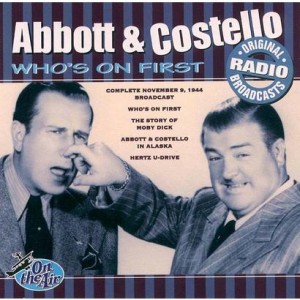Men’s Ministry Breakfast – Feb. 8
Saturday morning, February 8th, we come together for our next event… Who? The Men of Crossroads. What? Breakfast and fellowship. Dads are encouraged to bring their sons. Please feel free […]
This author has not written his bio yet.
But we are proud to say that Crossroads Presbyterian Church contributed 71 entries already.
Saturday morning, February 8th, we come together for our next event… Who? The Men of Crossroads. What? Breakfast and fellowship. Dads are encouraged to bring their sons. Please feel free […]
 What would it mean if someone told you that they “felt close” to you? Among other things it would probably occur to you that something about the relationship had gone right.
What would it mean if someone told you that they “felt close” to you? Among other things it would probably occur to you that something about the relationship had gone right.
That God created us for relationships is clear from Genesis 2:4-25. Yet, from the rest of Genesis it is clear that something has gone remarkably wrong (see Genesis 4). As we heard on Sunday, God the Father has sent his Son “to reconcile to himself all things, whether on earth or in heaven, making peace by the blood of the cross” (Colossians 1:20). Jesus’ people are seeking relationships as they were intended to, or more simply, they’re seeking communion.
God is presented as the Potter, the Gardner and the Builder, in each case working to provide for the relational needs of his various creatures. First, the earth is in need of a man to cultivate it – so God the Potter forms the man (Adam) from the dust of the earth (Adamah). The man is in need of a relationship with his King, so God the Gardner provides a wonderful garden just outside of his palace as the place where he can relate to his friendly Lord (Genesis 2:10). Finally, the man being alone is not good, so God the Builder makes a woman out of Adam’s rib to be his companion and helper in extending the borders of the Garden.
Notice that for every need, a personal relationship was God’s answer. Notice that in every case, that personal relationship was provided for nothing that the creature had earned or deserved. All was provided for by God; all was of the Lord’s creative and personal grace. Notice that the grace of God is experienced in relationship. Notice that the grace of God is not experienced only in the relationship between the individual man and God but in a complex of relationships. God created us for relationships, and Jesus is in the business of restoring them.
Questions for Conversation
 Do you see the call to be an image-bearer of God as a privilege or an obligation? Do you see salvation as freedom from the call to be an image-bearer or freedom for the call to be an image-bearer?
Do you see the call to be an image-bearer of God as a privilege or an obligation? Do you see salvation as freedom from the call to be an image-bearer or freedom for the call to be an image-bearer?
Genesis 1:26-31 is the ticket to seeing that image-bearing is a privilege that Jesus came to restore. Just as God acts as Prophet, Priest and King, we are made to image him forth in those very roles too.
God acted as Prophet by authoritatively speaking the world into existence. And God said…and it was so…And God said…and it was so. He also lived up to the role by interpreting his work for us, telling us that it was good. We are called to use our language in similar ways as those who bear our Creator’s image. We not only are forgiven for lying or failing to pray for others but we also are given the Spirit to use our language to create edifying experiences. Additionally we too are called to make interpretive comments. It is risky business, as is all of life, but it is a privilege bestowed upon us at creation.
God acted as King by ruling and exercising full control when he created the environment. Nothing stood in his way as he made the heavens and the earth. Through faith in Jesus Christ, we have not only been forgiven for, say, losing control of our cars in a night of drunk driving; we have been given the privilege of imaging our King as his vice-kings and queens. Male and female alike are called to “subdue and have dominion” over some of God’s creation (notice that time and weather are not included).
God acted as Priest by drawing near to his creation and blessing it, bringing about its full maturity in relationship to him. We see this early in Genesis 1:3 when the Spirit of God hovers over the waters. We see it later when he acts as priest to bless the human couple, “be fruitful and multiply and fill the earth.” By multiplying and filling the earth with the image of God, we had the calling to be that blessed presence. But, instead, humanity has been known to be a curse. Wherever we have ended up, there have tended to be wars and unrest eventually. Yet we are remade into Christ’s image through faith in his power and are able to be that blessed priestly presence in the earth again.
Oh, and we don’t have to have sex or children to be fruitful – although we aren’t averse to that. 🙂 Simply through the work of evangelism and discipleship, we participate in the call to multiply the image of God in the earth.
Questions for Conversation:
1. What role do you see most as a privilege? What role do you see most as an obligation in a negative way?
2. Can you think of stories from the Gospels of how Jesus perfectly fulfilled the roles of Prophet, Priest and King?
3. How does Jesus’ death and resurrection for us most reveal the image of God through him?
4. Where do you most need to grow as believer in Jesus Christ? Prophet? Priest? King?
 In the beginning God created the heavens and the earth. How? By the words of his mouth.
In the beginning God created the heavens and the earth. How? By the words of his mouth.
Words are important. God’s words, even more. In Genesis 1:1-2:3 we have the word of God regarding how the cosmos was created. These are important words.
The words in Genesis weren’t written yesterday, of course. Rather, they were written thousands of years ago, by an Egyptian-prince-turned-shepherd-turned-reluctant-prophet called Moses. And Moses was the speaker for God to an ancient people, Israel. So God chose to communicate his word to a people in a specific time and place – which is a very different time and place from us today. Genesis 1-2, and the Bible as a whole, was not written to us. Nevertheless, the Bible was written for us.
Here’s the problem. Our modern ways of thinking aren’t always the ways in which the original writers and hearers thought. Our questions aren’t always their questions. The answers they were looking for weren’t always the same ones we are looking for. Therefore, confusion can ensue when we seek answers from Moses based on questions he wasn’t intending us to ask.
The problem is illustrated in the Abbot and Costello skit, “Who’s on first?” Since the two men aren’t speaking on the same terms, they misunderstand each other. In the same way, we can come to Moses on different terms than those on which he comes to us. Confusion is inevitable.
So, when we come to Genesis 1-2, we come with questions fueled by a culture that is used to speaking about creation in terms of physical material. Yet, generally, the Israelites came to the text asking questions of purpose. What was the purpose of the light, sky, sea, land, stars, animals and humans? Even more importantly, who gave this purpose to it all?
What we come away with is a message that no scientific text can give – a message of purpose. As Albert Einstein once said, “The function of setting up goals and passing statements of value transcends the domain of science.” God, through Moses, could have written a tome that would’ve outdone the greatest scientific thinkers of our day and on their terms. But instead he decided to write an equally truthful beginning to Genesis about the purposeful creation he designed by his amazing creativity – a creation designed to find its fullest joy in glorifying its loving Creator.
All women are invited to attend this month’s women’s fellowship event on Tuesday, January 14th at Brothers Encore (in Montclair) at 7:00pm. Please come prepared to share a funny story from […]
 This past Sunday we learned that God intends to renew all things, including society, through the work of Jesus Christ. Sometimes salvation is presented as “spiritual” as opposed to “physical” and so we envision our ultimate salvation as a non-physical and non-social reality to come. But that is not the case. The visions that God gave to the Apostle John indicate not only that there will be a new creation but also that those who believe in Jesus will be resurrected from the dead and part of a new society within a renewed creation.
This past Sunday we learned that God intends to renew all things, including society, through the work of Jesus Christ. Sometimes salvation is presented as “spiritual” as opposed to “physical” and so we envision our ultimate salvation as a non-physical and non-social reality to come. But that is not the case. The visions that God gave to the Apostle John indicate not only that there will be a new creation but also that those who believe in Jesus will be resurrected from the dead and part of a new society within a renewed creation.
To illustrate the difference between the hopes and dreams that are centered on temporary and passing cities and the ultimate city to come, the City of God (or New Jerusalem) I rewrote “New York, New York”. I include the old version plus my new version “God’s New City” [patent pending] below.
NEW YORK, NEW YORK
Start spreading the news
I’m leaving today
I want to be a part of it
New York, New York
These vagabond shoes
They’re longing to stray
Right through the very heart of it
New York, New York
I want to wake up in that city
That never sleeps
And find I’m king of the hill
Top of the heap
These little town blues
Are melting away
I’m gonna make a brand new start of it
In old New York
If I can make it there
I’ll make it anywhere
It’s up to you
New York, New York
GOD’S NEW CITY
Start spreading the news
We’re here to stay
We want to be a part of it
GOD’S NEW CITY.
These vagabond shoes
They’re longing to stray
Right through the very heart of it
GOD’S NEW CITY.
I want to wake up in that city
That never sleeps
And find Christ is King of the hill
Top of the heap
Our little town too
Is going to play
An important part of it
In New Zion!
Since Christ has made it there
We’ll make it anywhere
It’s up to Christ
GOD’S NEW CITY!
 Networking is a normal part of human life. If humanity had not given itself to the advice of the snake, we certainly would’ve been networking in the garden. Unfortunately that is not the case, and godless agendas can twist networking down unprofitable paths.
Networking is a normal part of human life. If humanity had not given itself to the advice of the snake, we certainly would’ve been networking in the garden. Unfortunately that is not the case, and godless agendas can twist networking down unprofitable paths.
Over and over again, the people of God, the seed of Abraham, have networked for the wrong reasons. They had the Almighty’s assurance of protection, but in the face of danger they ran to Egypt for help (see Isaiah 30:1-7). In Jesus’ time, the leadership of Israel was making the same mistake. Afraid of Jesus’ power and popularity, they ran to Rome for their help, seeking their favor. This blending of Rome’s gracious favors led to Jesus’ death. Again, we saw today how the same earth-bound agendas almost led to grave ends. Paul in Acts 25:1-12 is in the same predicament. Surrounded my men serving the agenda of nation and culture, he is facing potential imprisonment and death.
Yet God had plans for Paul to go to Rome, so the story could not end there. Paul, the Jewish Christian, had received the Holy Spirit. Unlike most of the Jewish leaders, he had been given eyes to see that Jesus really was the promised Messiah of the Old Testament (see 2 Samuel 7, Psalm 110 and Isaiah 53). He saw through the godless plans of evil men to the good purposes of God for the profit of the world. When they presented him an option that was meant to lead to his death in Jerusalem, Paul saw it as an opportunity to travel to Rome and therefore bring the message of life to the people of that city (see Acts 25:12).
Luke had many lessons for us today. First, we ought not to stake our hopes for the stability of the Church on the favors of nation, party or culture. Instead, all the favor we need in order to complete the Church’s mission is provided through the favor of Jesus Christ the Resurrected. Second, since we have the Holy Spirit to help guide us with Scripture, we are able to see vistas that others cannot see. God has placed us in the midst of many broken systems: government, work, school, family and even the church. Yet, Jesus’ favor rests upon us, so we are able to discern ways to influence these many systems in the ways God wants.
Questions for Conversation:
1) Have you heard of or experienced a time when the Church or a Christian was relying too much on the favor of the world for her success?
2) What network are you a part of that you’d like to see change? Can you discern how God intended it to work at creation? For example, what does God intend business transactions to look like?
3) How does Colossians 3:1-4 relate to today’s message:
Since, then, you have been raised with Christ, set your hearts on things above, where Christ is, seated at the right hand of God. 2 Set your minds on things above, not on earthly things. 3 For you died, and your life is now hidden with Christ in God. 4 When Christ, who is your life, appears, then you also will appear with him in glory.
 This past Sunday, Luke guided us through the history of Apollos in Acts 18:24-28. Apollos, though he was a competent and eloquent man, knew he needed directions and was willing to take them when offered. John the Baptist, Aquila, Priscilla and most importantly the Holy Spirit (John 16:12) acted as Apollos’ guides as he sought to go further along on the “way of God” (Acts 18:25; cf. Deuteronomy 30:16; 32:4). Apollos eventually ended up becoming a guide to others in Corinth, others who like him had “through grace believed.”
This past Sunday, Luke guided us through the history of Apollos in Acts 18:24-28. Apollos, though he was a competent and eloquent man, knew he needed directions and was willing to take them when offered. John the Baptist, Aquila, Priscilla and most importantly the Holy Spirit (John 16:12) acted as Apollos’ guides as he sought to go further along on the “way of God” (Acts 18:25; cf. Deuteronomy 30:16; 32:4). Apollos eventually ended up becoming a guide to others in Corinth, others who like him had “through grace believed.”
Unfortunately, where Apollos succeeded, the Corinthians failed. They began to focus on their great teacher Apollos and not on the Kingdom of God into which he was pointing them. Although it was not Apollos’ intention for them, the Corinthians treated their guide like a poster, not a pointer. They started dividing over who their favorite Christian pop-star was: Apollos or Paul or Peter or Christ (see 1 Corinthians 1). They were unable to progress further into the Kingdom of Christ because they were not following the directions of their guides. Instead they were only moving further into the kingdom of this world, where the cult of personality holds sway.
The normal way that God guides his people is through providing Spirit-led guides for us. Just like Apollos, we must trustingly submit to the authority of others in order to proceed further into God’s kingdom.
Questions for Conversation
– When you are seeking to know God’s will, how do you expect to come to know what his will is?
– Do you believe that God expects us to look to others for his guidance?
– How do you decide who’s the right person to ask for wisdom? What gives them the authority to guide you well?
– Have you fallen into the trap of treating guides like posters rather than pointers?
– How do you see the necessity of Spirit-guided teachers in 1 John 4:6?
 Disagreement is a funny thing. Well, maybe funny isn’t the right word (but interesting might be overused). You see, on one hand, agreement is our goal (2 Corinthians 13:11). We also know that we are not to be selfish and always demand our own way. At the same time our discomfort with disagreement may be because of other reasons. Ungodly fears of rejection and of being wrong can often dictate our emotional response more than godly commitments. In order to tease out our motivation we need to both be aware of our emotions and also what triggers them.
Disagreement is a funny thing. Well, maybe funny isn’t the right word (but interesting might be overused). You see, on one hand, agreement is our goal (2 Corinthians 13:11). We also know that we are not to be selfish and always demand our own way. At the same time our discomfort with disagreement may be because of other reasons. Ungodly fears of rejection and of being wrong can often dictate our emotional response more than godly commitments. In order to tease out our motivation we need to both be aware of our emotions and also what triggers them.
In our passage Sunday (Acts 15:36-41) we learned about a disagreement that was unavoidable between Barnabas and Paul. They disputed as to whether John Mark should join them on another missionary journey. (As a side note, why do we call this the “second missionary journey”? Isn’t it their third? First was the journey from Antioch to Jerusalem with help for Jewish Christians, second to Cyprus and southern Turkey in an evangelistic form of outreach. Maybe we think of missionary as only having to do with word ministry as opposed to deed?) This disagreement within the body of Christ was unavoidable because a) they are humans and will not have God’s perspective on the issue b) God didn’t speak into the situation with his perspective and c) John Mark’s sinful behavior added the irrationality of sin into the picture. So, at the point where they had their “sharp disagreement” the goal was to disagree to the glory of God.
So how could they (and how can we) disagree to the glory of God? We need to disagree with humility, without despising and as those who are ultimately answerable to the risen Christ our Lord. We must be humble because we are only human and God hasn’t given us his divine perspective on our particular situation. Humility is requisite because of the many ways sin has fractured the many situations we find ourselves in. Despising and hatred do not have a place among us, and so when we have differing opinions we must nevertheless respect the other (Romans 14:1-3). Despising those we have disagreed with shows that there is something amiss about the way we are relating to our brother, sister and/or God. Finally we must be able to stand before Jesus and be able to say we took our position out of concern for his glory and good for our neighbor. Jesus died and rose to the end “that he might be Lord both of the dead and the living” (Romans 14:9-10). If your goal in defending your position is to please your father, friend or professor without any thought to Christ and his judgment than your disagreement is less than gospel disagreement. That is because gospel disagreement will always seek to be agreeable to Christ’s will. We cannot disagree with God.
So, how are you doing in your relationships? Do you agree with people, simply to keep them from leaving you? Do you disagree with people simply to be the first to do so since you believe they will reject you anyways? Where do your fears about disagreement come from? Are they rooted in the gospel of God’s grace through Jesus Christ? When we know that we are accepted by God eternally through Jesus and that God’s people are striving to work out disagreements in this way our lives will increasingly grow into the harmonious unity that God desires for us.
Questions for Conversation
What is the worst disagreement you’ve ever had? Why was it so bad? Were your emotions coming from a place of fear? If so, what were you afraid of?
Are you embarrassed of that disagreement? Why?
Will you be able to stand before your Savior in good conscience regarding the position you took in that disagreement?
Is it possible to contact that person and remain connected to them in a healthy way? How could you do so?
 “What’s in a name?” Juliet asks in Shakespeare’s famous romance. Names are small packages that carry a great deal of freight. For example, consider the name “Christians”? How did we get that name? In Acts 11:19-30 Luke records the story of the disciples in Antioch, when they were first called Christians.
“What’s in a name?” Juliet asks in Shakespeare’s famous romance. Names are small packages that carry a great deal of freight. For example, consider the name “Christians”? How did we get that name? In Acts 11:19-30 Luke records the story of the disciples in Antioch, when they were first called Christians.
Note that this group was called Christians (11:26). That is, they were given this name by those outside of their own circles. The presence of this group within the public square was thick enough to warrant a label. At the same time, no existing label was sufficient. What other group in Antioch consisted of Jews, Africans, Asians and Syrians from its very onset? What other group in the city submitted to the leadership of Jewish teachers in mainly Greco-Roman gatherings? What other mainly Hellenistic group in the metropolitan area would send resources and funding to Jews in Jerusalem? Most important and unique, however, was the core commitment of its members to this Lord Jesus whom the original adherents had preached. With all the Greeks among its members, one may have expected a core commitment to Lord Caesar. With the Jewish sympathies among them, one may have expected the core commitment to YHWH or maybe even Lord Herod. When it came down to it, there was only one common denominator – a common agreement regarding their need for the grace of God through the Lord Jesus Christ.
How can we live up to the name “Christians” today? When people meet us as individuals or experience us as a group on Sunday, what name do we elicit? Does our life elicit the label of Christian or are we easily labeled by other groups? Do we transcend the common societal labels such as liberal, religious, progressives, conservatives, environmentalists, etc., etc., etc.?
On Sunday I mentioned several ways that we can seek to make Christ’s grace the defining characteristic of our community. One of them was being willing to learn from those outside of “our city.” Like those Greek converts in Antioch who were willing to be taught by Jews from outside their city, we too can submit to Christians from outside our immediate circles. Specifically, I challenged small group leaders to choose a book in the coming year that comes from outside our time period, nation, denomination, or Reformed tradition. Of course you don’t have to wait for your care group to read one to pick it up yourself. I have listed several below for your consideration.
Saint Augustine of Hippo (4th century, North Africa), Confessions (~300 pages)
Jean Calvin (16th century, France), Golden Booklet of the True Christian Life (short section taken from the Institutes)
Kwame Bediako (Ghana), Jesus in African Culture (compact booklet on the book of Hebrews)
Vinoth Ramachandra (India), Faiths in Conflict? Christian Integrity in a Multicultural World
Samuel Escobar (Peru), The New Global Mission: The Gospel from Everywhere to Everyone
Roland Chia (Indonesia), Hope for the World
Ivan Satravyata (India), Holy Spirit – Giver of Life
If you’d like to make a donation to support our church’s ministries,
please click the button below.
15557 Cardinal Drive, Woodbridge, VA 22193
(703) 794-9431
Join us for worship, Sundays at 9:30a.m.
This site uses cookies. By continuing to browse the site, you are agreeing to our use of cookies.
Accept settingsHide notification onlySettingsWe may request cookies to be set on your device. We use cookies to let us know when you visit our websites, how you interact with us, to enrich your user experience, and to customize your relationship with our website.
Click on the different category headings to find out more. You can also change some of your preferences. Note that blocking some types of cookies may impact your experience on our websites and the services we are able to offer.
These cookies are strictly necessary to provide you with services available through our website and to use some of its features.
Because these cookies are strictly necessary to deliver the website, refusing them will have impact how our site functions. You always can block or delete cookies by changing your browser settings and force blocking all cookies on this website. But this will always prompt you to accept/refuse cookies when revisiting our site.
We fully respect if you want to refuse cookies but to avoid asking you again and again kindly allow us to store a cookie for that. You are free to opt out any time or opt in for other cookies to get a better experience. If you refuse cookies we will remove all set cookies in our domain.
We provide you with a list of stored cookies on your computer in our domain so you can check what we stored. Due to security reasons we are not able to show or modify cookies from other domains. You can check these in your browser security settings.
These cookies collect information that is used either in aggregate form to help us understand how our website is being used or how effective our marketing campaigns are, or to help us customize our website and application for you in order to enhance your experience.
If you do not want that we track your visit to our site you can disable tracking in your browser here:
We also use different external services like Google Webfonts, Google Maps, and external Video providers. Since these providers may collect personal data like your IP address we allow you to block them here. Please be aware that this might heavily reduce the functionality and appearance of our site. Changes will take effect once you reload the page.
Google Webfont Settings:
Google Map Settings:
Google reCaptcha Settings:
Vimeo and Youtube video embeds:
The following cookies are also needed - You can choose if you want to allow them:
